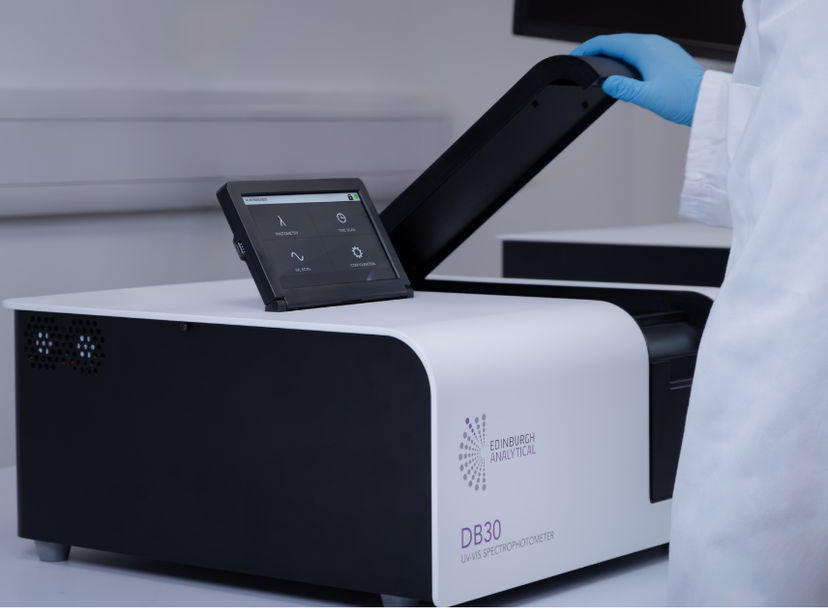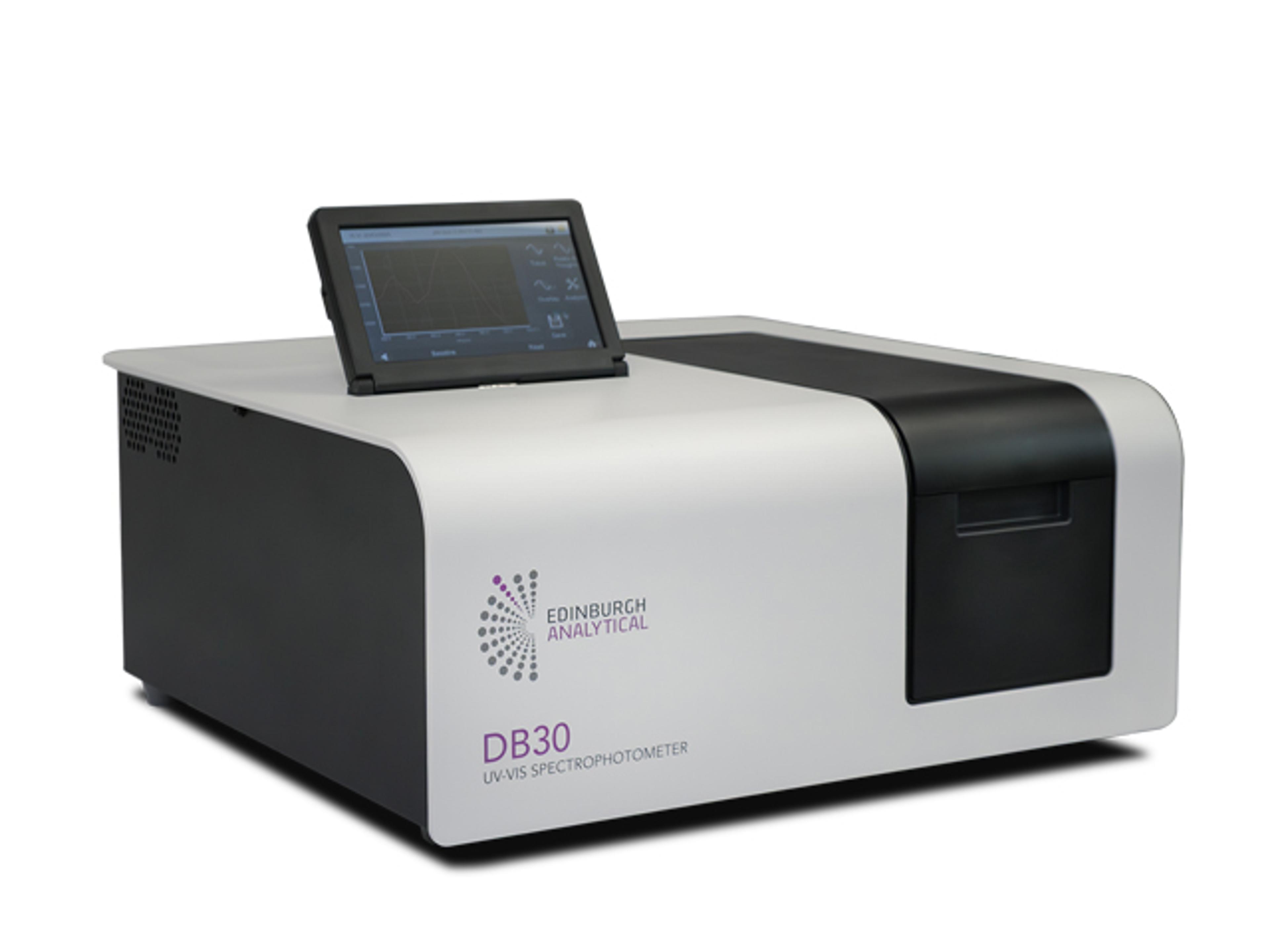UV-Vis spectroscopy takes center stage in food fraud detection
Discover how Edinburgh Analytical’s UV-Vis and fluorescence solutions are addressing the growing challenge of olive oil authenticity testing
5 Jan 2026
Food fraud is a global problem, costing companies billions of dollars a year whilst driving consumer mistrust. In Europe, olive oil mislabeling remains one of the most prevalent cases, while, globally, issues can be seen across the industry from wine to palm oil. Edinburgh Analytical is addressing this challenge head-on by delivering instrumentation specifically designed for analytical laboratories tackling authenticity testing and quality assurance in the food and beverage sector.

(left) Stuart Thomson, Head of Product and Applications, and (right) William Yip, Product Manager, Edinburgh Analytical
From bench-scale UV-Vis spectrometry to FTIR instrumentation, Edinburgh Analytical’s technological mission is clear, to deliver innovative, high-quality instrumentation to make advanced spectroscopy accessible to every laboratory. As Stuart Thomson, Head of Product and Applications, explains, “Our aim is to combine advanced precision engineering with user-friendly software design and a strong customer support basis to help scientists and technicians achieve reliable results with confidence."
The company’s approach stems from a keen understanding of a laboratory's needs, leveraging the 50-year legacy of its parent brand Edinburgh Instruments, to develop practical solutions for routine testing workflows. As William Yip, Product Manager, notes, "We aim to empower users from research labs to quality assurance, enabling scientists and technicians to obtain accurate reproducible data with confidence."
Why food authenticity testing is more critical than ever
Demand for high-quality analytical testing, particularly within the food and beverage industry, is at an all-time high. High-quality food testing is critical to ensuring public health and also meeting the demands coming from both a regulatory and brand perspective. From olive oil to wine authentication and nutritional analysis, the reasons for food testing are broad but the demands are universal, instrumentation must be able to keep up with the growing demands of busy labs around the world.
"We are finding that testing facilities within food and drink manufacturing facilities and food testing institutions are typically looking for fast and high-throughput test protocols,” Yip details. “It isn’t unusual for scientists to be sitting at an instrument for eight hours per day and five days per week. They are busy and they need very reliable solutions.”
It is therefore fundamental that labs have access to instruments that are robust enough for repeated use, and easy to calibrate to ensure reliability. Edinburgh Analytical has designed solutions to meet these exacting needs, offering compact benchtop solutions with very intuitive software that streamline their workflows.
“Our instrument's usability enables technicians to run QA/QC or authenticity tests quickly without sacrificing accuracy,” Yip notes. “This helps the manufacturer meet compliance demands without bottlenecks."
A frontline tool against olive oil fraud
Olive oil authenticity is currently an area of significant challenge for food fraud. "Olive oil, particularly extra virgin olive oil, is a valuable commodity that is unfortunately prone to mislabeling and alterations," says Yip. "Some manufacturers will mix lower-grade or refined oils as extra virgin olive oil, mislabeling or misleading consumers."
The urgency of this issue is reflected in market demand. "According to the European Commission Alert and Cooperation Network annual report in 2022, the mislabeling of olive oil as extra virgin is still the most common case across Europe," reports Yip. Since that report, Edinburgh Analytical has seen increased sales of DB30 instruments to manufacturers and laboratories conducting olive oil qualification under IOC guidelines, particularly in major producing regions including Greece, Spain, and North African countries.

The DB30 Double Beam UV-Vis Spectrophotometer from Edinburgh Analytical, a versatile UV-Vis spectrophotometer with a compact, benchtop footprint.
To counteract olive oil fraud, the International Olive Council (IOC) has established official methods using UV spectroscopic techniques to classify olive oils and detect adulteration. These tests require high-resolution UV-Vis instruments capable of measuring specific UV ranges with precision. Edinburgh Analytical's DB30 UV-Vis spectrophotometer was designed specifically with this application in mind, providing the sensitivity, resolution, and stability necessary for IOC compliance testing.
The choice of UV-Vis spectroscopy for this application offers significant practical advantages. "Compared to other competing techniques like mass spec or chromatography, UV-Vis is a simple method," Thomson explains. The IOC standard was developed to make authenticity testing as widely accessible as possible throughout the supply chain. "In principle, you could have a UV-Vis spectrometer at every importer, every regulatory body, with the suppliers themselves. You can implement this testing throughout the entire product chain instead of relying on sending it away to central facilities."
For manufacturers with limited facilities the simplicity is crucial, ensuring that even the smallest of laboratories can carry out accurate testing. "UV-Vis spectroscopy is a simple technique that allows them to do the test with confidence and fast," notes Yip. "With food and drink being so fast-moving, manufacturers need to get their product to market quickly, with complete confidence that their product quality is good."
Crucially, compared to a lot of analytical instrumentation, optical spectroscopy is fairly simple, as Thomson explains, “It doesn’t require sample preparation, with the IOC standard for UV-Vis, all that needs to be done is to put it into a cuvette and to measure it.”
The UV-Vis IOC standard essentially provides a rapid pass/fail assessment for olive oil categories. "It's the first line of defense beyond a visual inspection,” says Thomson. If a sample fails this initial screening, it can then be sent to specialized laboratories for more comprehensive analysis.
Next-gen software and the future of food fraud detection
Looking ahead, Edinburgh Analytical is focusing significant development efforts on software capabilities. "One of our advantages as a very young brand in this space is we don't have the burden of legacy software," Thomson points out. "We are able to develop software in an agile manner, and we are really working to ensure that software is our distinguishing feature."
At the moment the software operates in two modes: one providing full parameter control for method development, and another featuring streamlined apps for specific applications. "Instead of having full spectrophotometer control, you can essentially turn your software into something that just measures for the application," explains Thomson. This ensures that the spectrometer is suitable for the wide range of skillsets found within a typical testing laboratory.
Yip adds that future development will enable lab managers or chemists to develop and lock methods so technicians can perform tests confidently without parameter changes. "Those methods and data are being traceable, and we can keep blocks of the record for future audit purposes," a critical feature for regulated environments.
This database system will also ensure Edinburgh Analytical's systems are well positioned to bring pharmacopeia and CFR-compliant functionality that could then benefit food and beverage testing as regulatory requirements evolve.
Overall, as food fraud continues to challenge global supply chains and regulatory bodies demand more rigorous authenticity testing, Edinburgh Analytical is bringing advanced spectroscopic capabilities to laboratories that need practical, reliable solutions. By combining Edinburgh Instruments' technical expertise with software designed for modern analytical workflows, the company is making testing accessible throughout the food and beverage supply chain, from manufacturers and importers to regulatory agencies, helping ensure product authenticity and consumer trust in an increasingly complex marketplace.

